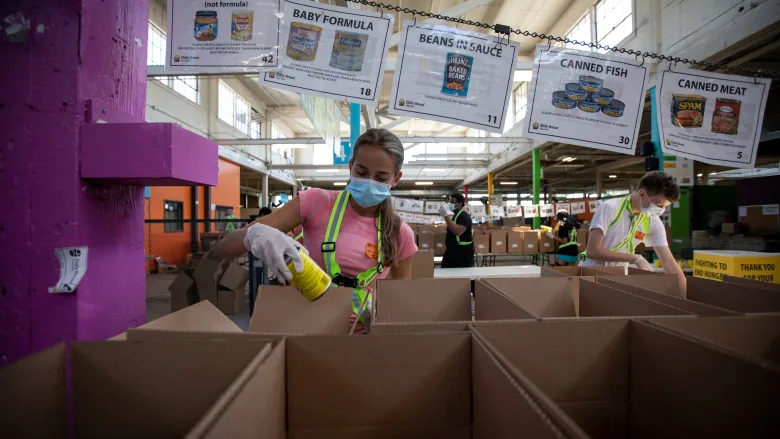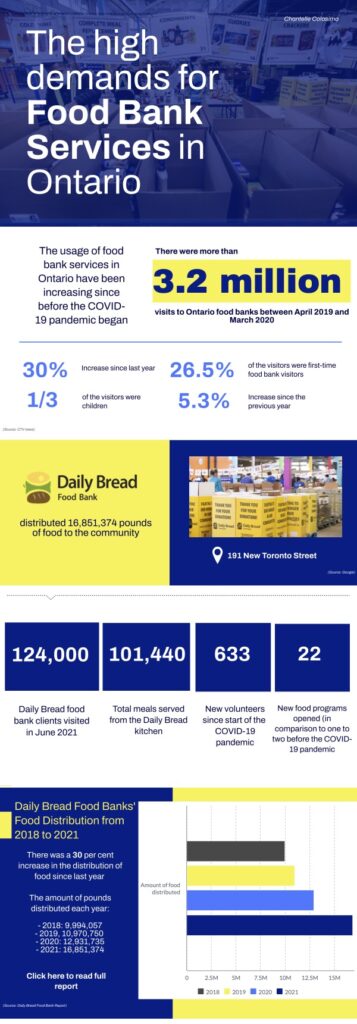
As living costs increase during the COVID-19 pandemic, food banks are facing higher volumes of service users than ever before says, the Toronto foodbank manager.
While citizens of Toronto face unemployment, high housing costs and increased food prices, more people than ever are relying on food banks.
At the start of the COVID-19 pandemic foodbanks experienced an immediate increase of people accessing food “up to 60 and almost 100 per cent increase,” said Rose Barcarse the education and training manager at Second Harvest food bank in a phone interview.
COVID-19 has led to a large amount of financial insecurity for low-income households, due to the increasing prices of food, low-income households can no longer afford the higher food prices.
“Food is the last thing on a low-income household to-do list, because of the increased food prices, the 20 dollars left over for food doesn’t get them much any longer,” said Barcarse.
As the demand for food bank services increases, food banks are scrambling to keep up with the demand.

Henry Chiu, director of development and marketing at North Harvest food bank says that to sustain the demand, longer hours and more pop-up locations have helped.
“Since the start of the pandemic, we have been averaging 400 to 500 houses a week, so we are working longer hours to accommodate the increased demand,” said Chiu in a phone interview.
Receiving donations and providing agencies with resources requires a lot of “sacrifice,” says Barcarse “to some extent it’s a lot of turning people away.”
As the Toronto economy begins to recover from the COVID-19 pandemic, many food banks continue to see high demands for service, many due to unemployment.
According to Food Banks Canada’s annual report, more than 80 per cent of food banks that reported increases in demand attributed it to COVID-19 related job loss.
by Masahda Lochan-Aristide


